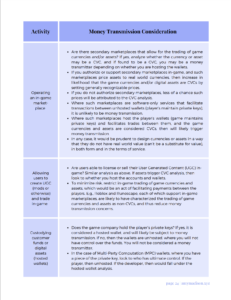MPC Digital Asset Wallet
When choosing a wallet for cryptoassets, it is vital to know how to protect your private keys. The MPC technology breaks up private keys into small parts and reduces the risk of a single point of failure. Some MPC providers also proactively update their key shares without requiring you to change your private key. This can protect your private keys and prevent hackers from stealing them.
The mpc wallet has several advantages. Firstly, it eliminates cold storage of private key material. While hot storage is more secure, cold storage means keeping your private key material offline. The two types of storage have their own security considerations. The MPC wallet eliminates the cold storage requirement by using threshold signatures, which are ideal for large enterprises.
In addition to its secure storage, MPC supports several different assets. Transactional latency may range from milliseconds to tens of seconds. Whether you prefer to store your private keys on your own or use a third party, you will need to ensure that they are secured and backed by a trusted third party.
Multi-party computation (MPC) is a powerful tool for securing digital assets. However, it is important to understand that not all MPC algorithms are created equal. Many institutions use the Gennaro and Goldfeder algorithm (MPC-GG18), but it isn’t as efficient or secure as a MPC-only system.

MPC Digital Asset Wallet Considerations
MPC is the de facto standard in digital asset storage and has become widely adopted by institutions and developers. Secure private key storage is essential in order to maintain the safety of digital assets. The two most popular methods of storing private keys are hot and cold storage. However, both of these methods are vulnerable to human error and are difficult to manage at scale.
MPC provides a safe and secure digital asset wallet and is compatible with the broader web3 ecosystem. As a result, it makes buying and selling non-fungible tokens more secure and convenient than ever. Numerous organizations have created wallets that integrate MPC technology. For example, ZenGo was the first consumer-facing MPC wallet and now boasts 650,000+ users. It also offers 24/7 live in-app support and plans to support web3-native applications in early 2022.
MPC is a form of multi-node cryptography. This means that a hacker cannot see the value of a transaction unless he or she has broken into six of the nodes. In addition, MPC security means that private key material is proactively moved between nodes.
An MPC wallet provides the highest security standards in a digital asset wallet. The key management is highly secure and allows you to create custom policies and rules to prevent unwanted transactions. You can also authorize or deny specific addresses and block requests from non-whitelisted addresses. An MPC wallet also has a feature that helps you create an encrypted backup of your wallet and recover it later.